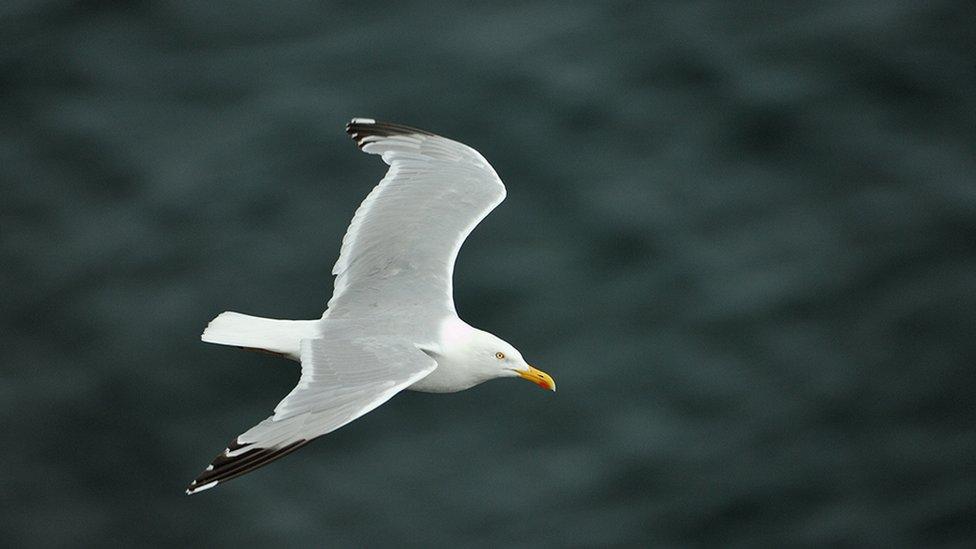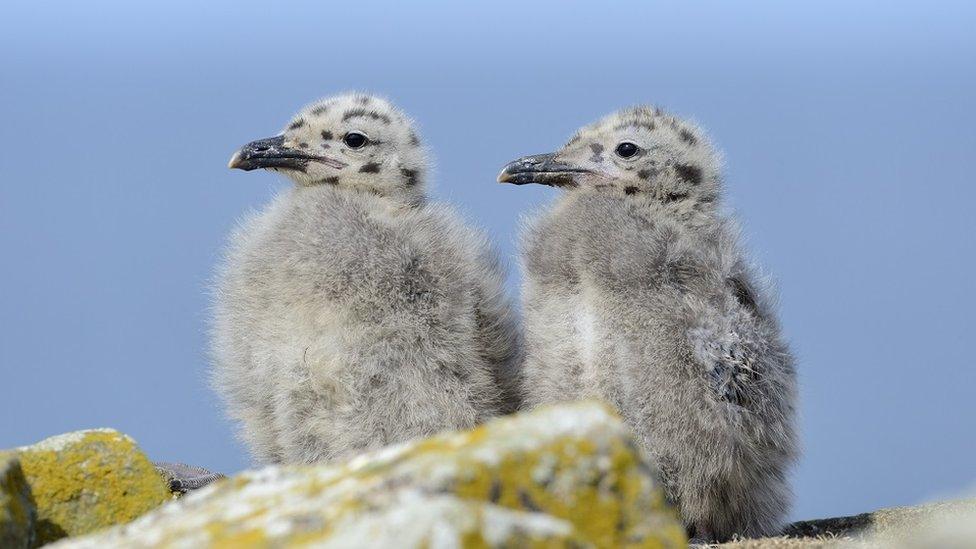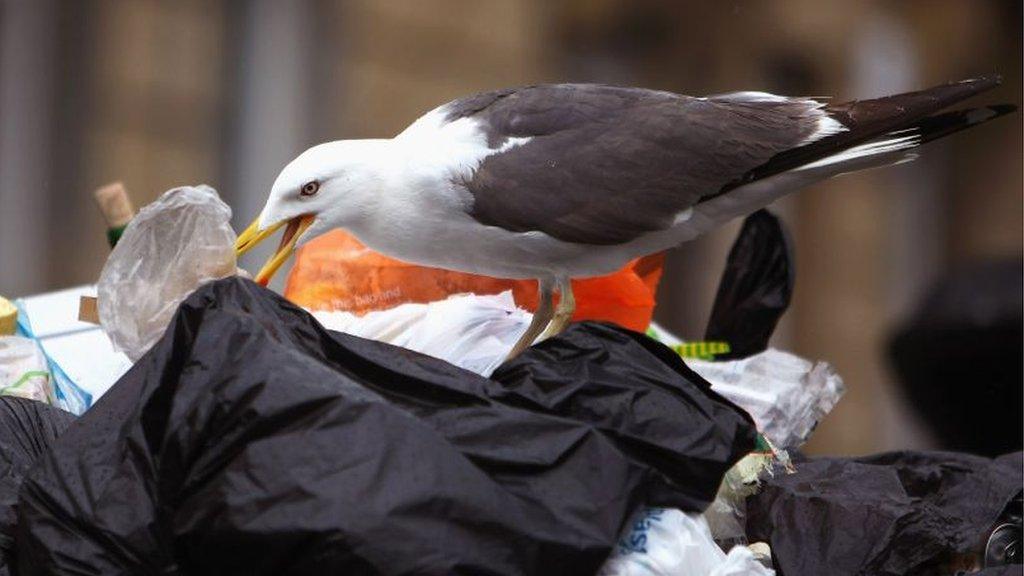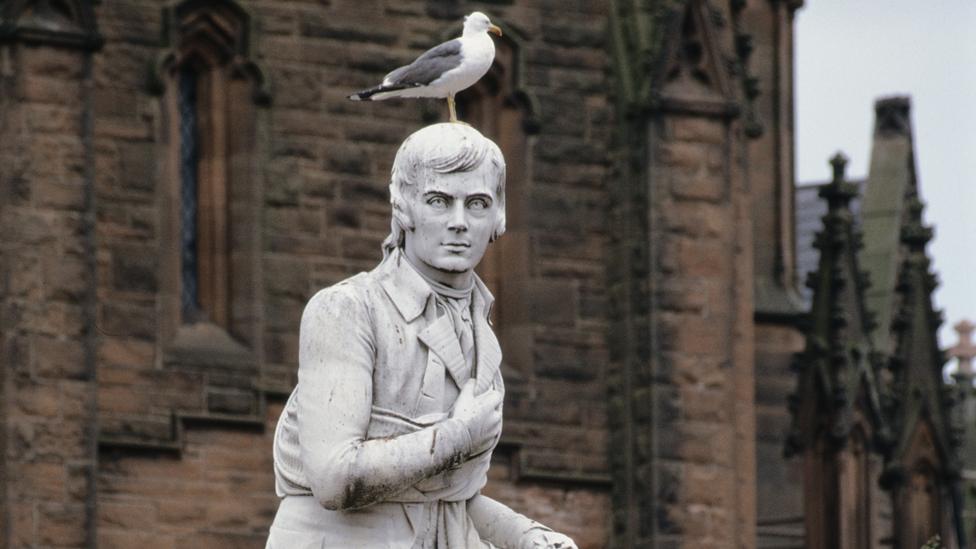Changes to marine food supply causing decline in gull numbers
- Published

Gull populations in Scotland are declining, experts say
Gull populations in Scotland are declining as their traditional food sources disappear, according to conservation body NatureScot.
Despite their prevalence in urban areas like Aberdeen, experts say numbers are dwindling.
Ornithologist Dr Andrew Douse said there had been a 60% drop in herring gulls since 1986.
He blames issues including changes in the fishing industry which have hit their food supply.
Gulls eat a variety of things - small fish, snails, insects, spiders and eggs - but Dr Douse believe a number of factors are causing their decline.
Speaking to BBC Scotland's Good Morning Scotland programme, the NatureScot gull specialist said changes to their marine food supply was a big factor in their decline.
"They used to get a lot of food from discards from in-shore fishing boats and changes in the fishing industry has led to fewer discards," he said.
"In parts of Scotland mink are a particular problem because they are good at swimming and can get onto offshore islands where there are breeding colonies.
"Disease may be a problem as well."
'Intelligent birds'
He said both Herring gulls and Black-backed gulls, which are generally found in the south of Scotland, have significantly declined.
Herring gulls are "red-listed species" on the birds of conservation concern list, while every other type of gull which breeds in Scotland is on the amber list.

Herring gulls are a "red-listed species" and have legal protected in Scotland
And he defended their behaviour in towns and cities, where they can be regarded a nuisance for spreading litter, making noise and swooping on the public.
"They're remarkable birds, really adaptable and intelligent," he said.
"What you see in towns is them being very good parents, they're very defensive of their nest and their young and that is what causes the aggression.
"They can be a problem but there are things we can do ranging from not feeding gulls in towns to being careful of waste management.
NatureScot said the birds are wonderful and are often "underappreciated".
The group said: "They're quite handy for cleaning up our beaches.
"They're also clever, dropping mussels onto rocks or roads to break them open, and stamping their feet to imitate rainfall and trick earthworms into coming to the surface."
- Published30 January 2022

- Published7 March 2019
